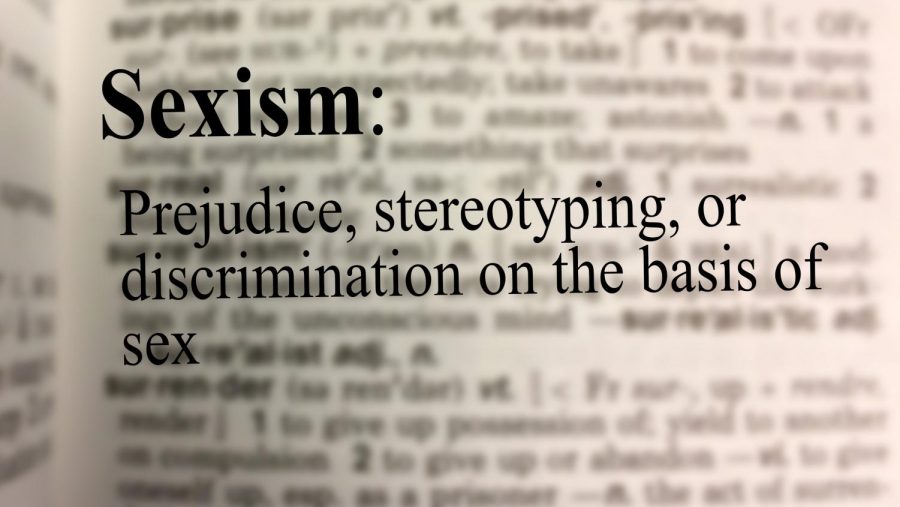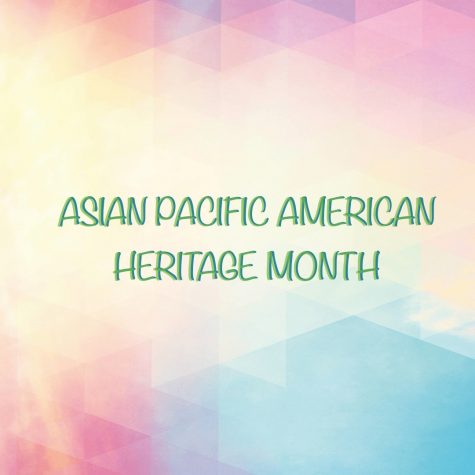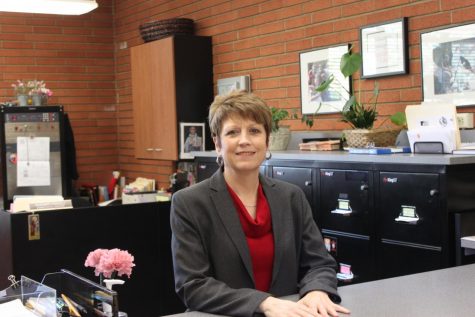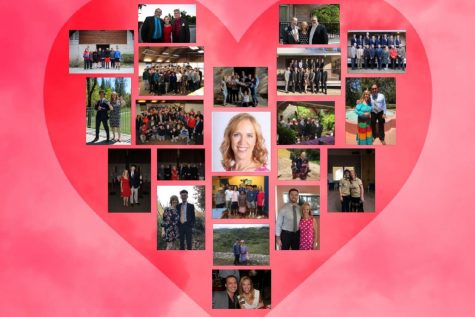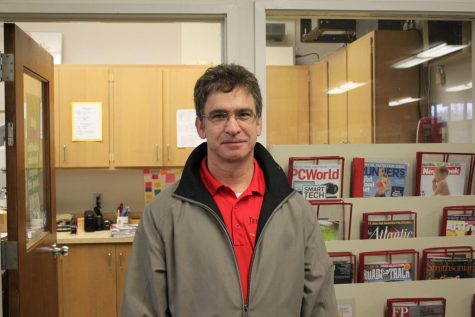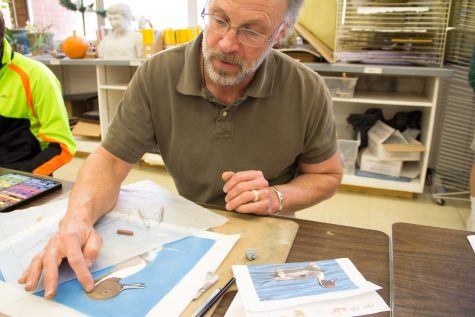Breaking down sexism, women of Jesuit speak on its various aspects and their encounters with it
The following is a part of a series of articles written around women’s voices on campus at Jesuit High School Sacramento. This is the second edition. It focuses on the various aspects of sexism, perspectives and experiences, and the way forward towards equality.
Sexism is a threat to the truth that all humans are created equal and deserve the respect that is fundamental to the preservation and upholding of human dignity.
The Plank asked female faculty and staff members at Jesuit High School Sacramento to speak on what sexism is, the ways it is perpetuated, their own experiences with it, and what it is to be an ally for women’s equality.
Sexism is a difficult, but essential, topic of discussion that must be examined in recognition of the respect and dignity that inherently belongs to all. Media Arts Teacher Dr. Katherine Madden and Director of Service & Justice Ms. Sara Brabec talk about some of the difficulties in broaching this subject.
“[Sexism] can be a difficult subject to discuss because it can quickly become politicized,” Dr. Madden said. “Instead, these conversations should stay grounded in empathy, human rights, respect, and social justice. If as a society we continue to normalize people sharing their experiences and people listening with compassion and empathy, then think how much more healthy and productive our conversations could be.”
“I think we back ourselves into a wall when we use terms like sexist or racist as pejoratives as ways of putting people down and not just describing behavior,” Ms. Brabec said. “If the issue of sexism comes up in class or campus life, I never want students to feel ashamed or embarrassed because we’re all in process; we’re in growth. And school is a place where it should be safe, to make mistakes and learn and say, ‘Oh, hey, that was hurtful, or that was outside of the bounds of what’s appropriate.’”
______________________
Ms. Annie Crew-Renzo, Theology Department Chair
Granted there are difficulties in the conversation surrounding this issue, but Theology Department Chair Ms. Annie Crew-Renzo finds that this moment of self-recognition that stems from examination on racism and anti-racism aligns with the spirit of the times.
“[O]ur country is going through this really interesting time of self examination around race,” Ms. Crew-Renzo said. “And then, by extension, around all kinds of discrimination and looking at historical movements the women’s movement that have pressed for equal rights for women or pressed for equal rights for all people […] As we move through this year [2020], and into next year is just like what’s my responsibility, or breaking down unjust systems and where do I need to listen better and where do I need to be more present to people.”
Ms. Crew-Renzo asserts that the various voices included within this “larger conversation” on all forms of discrimination expands and reflects the understanding of one another and strengthens the Jesuit community.
“It’s our richness of our diversity I guess that brings this conversation to the next level and so the way we approach each other with respect and understanding will ultimately make a stronger community at Jesuit […] We are all manifestations of the Creator in some way, and therefore have something to offer to this larger conversation [and] ultimately what we’re trying to do is to understand each other better and the more we use research and the more we listen to one another that we’re going to build a stronger Jesuit High School community.”
Ms. Teresa Herrera, World Languages Department Chairperson
There are different modes of expression — conscious or not — that contribute to sexist norms or attitudes. World Languages Department Chairperson Ms. Teresa Herrera defines sexism as “prejudice based on sex” and cites one of the worst results of gender-based discrimination.
“Sexism creates a power structure in which women are subjected to less access to power because of their gender, which is seen as weaker,” Ms. Herrera said. “It is difficult to sum up [what contributes to sexist behaviors], but the objectification of women is probably the most insidious result of sexism. When women are judged before they are able to prove their abilities, this is a stark example of their objectification.”
Ms. Katie Maynard, Junior-Level Coordinator for the Office of Service & Justice
Defining sexism as “discrimination and prejudice on the basis of sex,” Junior-Level Coordinator for the Office of Service & Justice Ms. Katie Maynard reflected on the importance of embracing genuine feminism “which reveals the beauty of both male and female.”
In working towards true equality, she notes that “when that beauty of male or female is disgraced, sexism is a product of that dis-grace-ment.”
Ms. Maynard shares how personal experiences of sexism and misogyny have occurred in her work environments.
“I have absolutely experienced sexism and misogyny in the workplace throughout my life, whether it was while working at a golf course during my summers in college, or in my teaching career here at Jesuit High,” Ms. Maynard said. “For the most part, these experiences have been under the surface (i.e. side-comments, or the use of casual language which perpetuates stereotypes), which only speaks to the need for us to have this conversation as a school community.”
Ms. Sara Brabec, Director of Service & Justice
Director of Service & Justice Ms. Sara Brabec makes an important point on assumptions that sexism can be one-sided and towards to the opposite sex.
“I think an important note is that women can reinforce sexist policies and beliefs as well,” Ms. Brabec said. “We [women] can call each other — other women — names and uphold sexist structures as well. And sometimes that’s a strategy for getting ahead. And sometimes it’s unconscious. But it’s not like only men can be participating in sexism.”
Ms. Brabec also mentioned wanting there to be consciousness of sexism, but knows that there can be consequences for speaking up.
“I want people to know about the realities of sexism and I want to be still treated as a colleague who is amicable and collaborative,” Ms. Brabec said. “The risk, I think, for women, for people of color, speaking up about racism, speaking up about sexism, is that you get labeled as difficult or unwilling to take a joke or […] just the general difficult woman, or opinionated. So it’s just hard to navigate how much do you speak up and point out, and what do you let go and just kind of roll with. And there’s a lot I think that as a woman, I just learned to roll with and address it when it needs to be addressed, but otherwise just kind of try to go about my day to day work.”
At a former school, Ms. Brabec recalls an inappropriate incident with a colleague that she ended up reporting to her supervisor, then principal, then president. She explains what the process was like and what her thoughts were on the matter at the day’s conclusion.
“[I]t ended up being that the whole workday just got sucked up by dealing with this one incident,” Ms. Brabec said. “And at the end of the day, I was like, man, I had things I needed to do today like I had work to do. And that’s one of the costs of sexism that I think maybe people don’t understand is the emotional labor that goes into dealing with it. And then the actual labor loss. I lost a workday and that’s bad. Even if you only care about economics, that’s bad for institutions. That’s bad for business.”
Ms. Jessica Billigmeier, Accounts Retrievable Student Accounts Coordinator
Having previously worked in various business jobs and positions, Accounts Receivable Student Accounts Coordinator Ms. Jessica Billigmeier recounts the barriers to promotion.
“At some of my previous jobs, trying to be promoted or going to a higher level required different skill sets, and some of the meetings would take place, or those relationships would be built on a golf course,” Ms. Billigmeier said. “So for me, that was one of the things that I was really trying to get into, was taking golf lessons, because I knew that that is a barrier for women. If you are not skilled at golfing, then you’re not going to be invited to these conversations. So that’s where I can see a barrier.”
Ms. Billigmeier continued: “And I still see that as a barrier today as there’s a lot of golf clubs that have the rule that they do not allow women […] and women that wanted to get into golf and wanted to take the clients out to these places […] they’re not invited because women are not allowed to golf there.”
Golf remains a predominantly male-only sport and Ms. Billigmeier notes that it was only in 2012 that Augusta National, one of the most revered golf clubs, allowed women membership with one of their first members being former Secretary of State Condoleezza Rice.
Dr. Katherine Madden, Media Arts Teacher
Before becoming a Media Arts teacher at Jesuit, Dr. Katherine Madden experienced sexual harassment and sexism in the culture and environment at her former workplace.
“I had one job in particular while working in the entertainment industry that was very much an old boys club,” Dr. Madden said. “Inappropriate jokes or stories, chauvinism, and bias made it very difficult for women to advance or to even want to remain in that environment. This led to a leadership team void of female representation. It was a toxic environment for women, as many jobs in the entertainment industry can be, which certainly motivated my exit from that industry and into education.”
From her time in graduate school, Dr. Madden states that “Higher education is notorious for being an environment ripe for harassment and discrimination and that was in some ways very true with my own experience while earning my doctorate. I was not confident enough to call out sexism in the moment, but quite honestly as a graduate student you lack power, so speaking out against it in the moment can be nearly impossible.”
Finding support in the women around her, Dr. Madden details how “real change” was brought about against the sexism and harassment that pervaded the environment.
“I owe my success in graduate school to the accomplished and strong women who I surrounded myself with on my committee,” Dr. Madden said. “My advisor in particular is this brilliant and empathetic woman whom we could confide in when we were subject to or witnessed sexism or harassment. She in turn would use her position as tenured professor with many prominent committee positions to enact real change at the institution so that these problems would not keep happening. This is why women or empathetic men in leadership positions are so important at institutions.”
Ms. Leslie Willson, World Languages Teacher
On where sexism occurs in her life, World Languages Teacher Ms. Leslie Willson states that “there are all kinds of instances” from “street harassment if you’re walking down the street or somebody says something about your appearance.”
Personal safety is something Ms. Willson considers when reflecting on sexism, the question at the forefront being, “Am I being safe?”
“Walking, especially in the evening or if it’s getting dark — and this is from the time I was allowed to go out on my own as a teenager, college years, even now — [I must be] really being aware of my surroundings. Is somebody walking behind me?”
Ms. Willson added: “If [The Plank readers] consulted a female that they know, their mom, sisters, whomever, we (females) cross the street a lot, but most males that I have talked to about this don’t have to cross the street, and don’t have to be so aware of their surroundings.”
The practice of anti-racism and self-awareness has been deeply examined by many Americans following a national conversation on race and privilege that was renewed in reaction to the violent death of George Floyd. Ms. Willson explains how that same mindset and reflection can extend to how to be anti-sexist.
“[F]or me personally, it’s becoming aware of it and recognizing whether I’m on the receiving end of that, what I call [a] sexist attitude, to say ‘hey that seems unfair based on my gender’ or to have a discussion with that other person, or [to know] if I’m the one doing it,” Ms. Willson said. “I think to work on being anti-sexist like to be anti-racist, to be anti-homophobic, anti-Islamophobic, anti-ageist, whatever, it’s really about being self-aware and looking at a person as a human being and not putting them into categories, which we do all the time.”
Ms. Willson advocates the importance of recognizing that sexism is embedded in phrases like “man up,” “be tough and strong,” “men don’t cry,” and especially “boys will be boys,” which has led to “toxic masculinity” — something that she views as hurtful for the perception of young men today.
Ms. Willson asserts that “we all have conscious and definitely subconscious biases,” but nonetheless it’s important to examine oneself and to speak up when an occurrence of sexism happens, “Silence is complicity as we’ve been learning,” she emphasized.
Ms. Kimbery Pell, Math Teacher
Math Teacher Ms. Kimberly Pell sees popular assumptions about gender norms to be a reinforcement of sexism and stereotypes.
“Assuming that children will or will not enjoy certain activities, topics, or toys on the basis of their sex and then taking actions to reinforce those assumptions [contribute to sexist attitudes and norms],” Ms. Pell said. “If parents repeatedly tell a child that they can’t play with dolls or trucks because of who they are, the message eventually gets through to them.”
Furthermore, Ms. Pell asserts that “Assigning certain tasks or responsibilities in the workplace on the basis of sex can lead to missed opportunities for those not usually seen taking on those roles. Often, the roles more likely to be assumed by men are also more lucrative and powerful, which has the effect of reinforcing existing power structures.”
For a message to students on how to be allies for women’s equality and call out sexist behaviors, Ms. Pell advocates that students be attentive of the rhetoric used in describing women and girls.
“I would suggest paying extra attention to how people around you talk about women and girls and then speaking up if you hear people being disrespectful or dismissive,” Ms. Pell said. “Do you ever hear male friends talking about females in an objectifying way, as if they exist primarily as sexual objects? Are you as likely to hear friends discussing how smart, creative, or funny the girls they know are as you would be to hear about how those girls look or who they have, allegedly, been sexually involved with? Do you hear male friends standing around and talking about girls and then laughing? If so, what are they usually laughing about? Are they making jokes at the girls’ expense or putting them down? Are they passing around photos of females? Is a lot of the conversation about trying to get girls to have sex with them? Do you or your friends have any double standards about how you judge the actions of males vs. females, particularly around sexuality?”
______________________
Sexism replaces the characteristics and nuances that make up an individual with preconceived notions, norms, or abstract ideas of another on the basis of sex. It divorces looking at a person for the fullness of who they are. This conversation on how we treat and view one another is hopefully only the beginning, one that will extend into future classes in the pursuit and respect of all persons.

